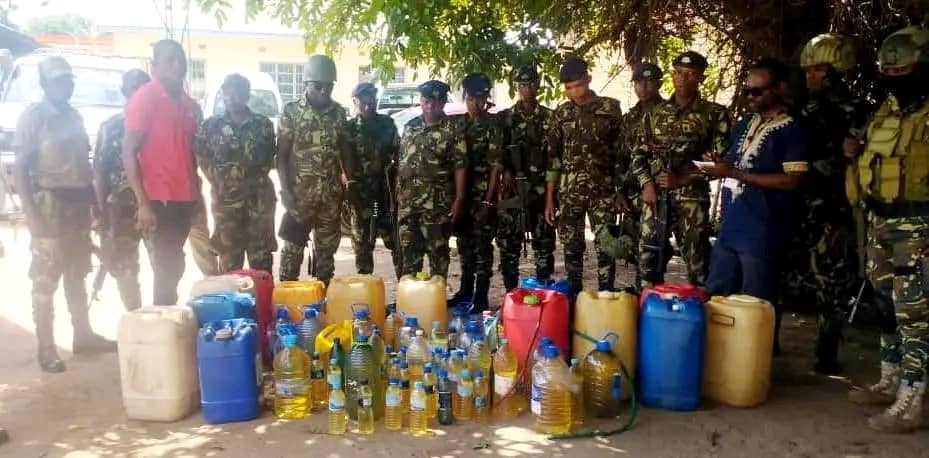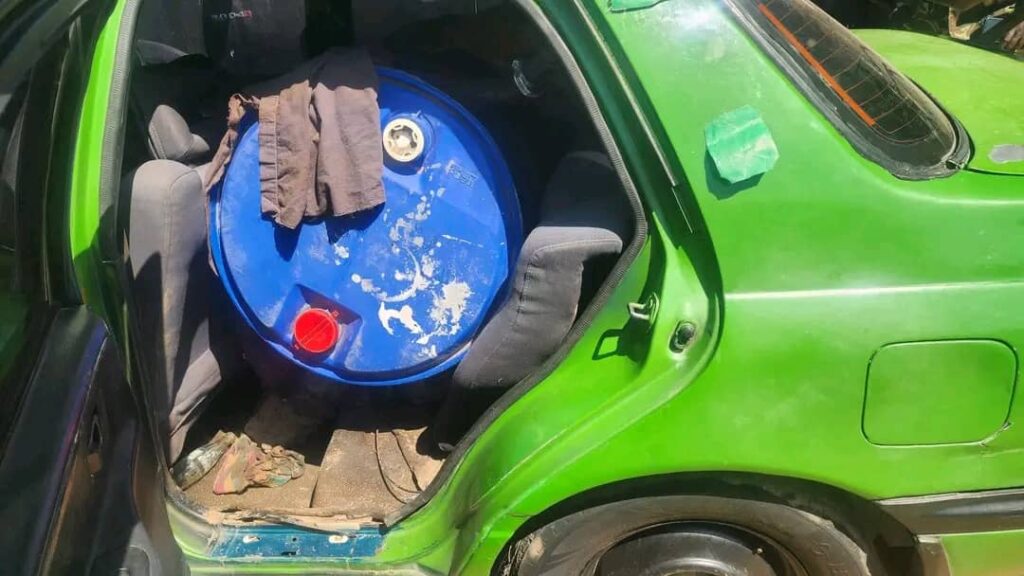Malawi’s fuel shortage is worsening every day, and while many point fingers at economic woes and foreign exchange constraints, disturbing revelations are emerging that the crisis is not just an accident of circumstance but a calculated act of political sabotage.
Police in Mangochi have busted a syndicate which has revealed that thousands of litres of petrol and diesel are being hoarded, diverted, and smuggled to Mozambique, where fuel prices are almost double those in Malawi, a lucrative black-market trade that is deepening the suffering of ordinary citizens.
In Mangochi, police have since seized 5,400 litres of fuel. In Mulanje, eight individuals attempting to traffic 4,830 litres of fuel across the border were also arrested. These seizures are likely just the tip of the iceberg.

Mangochi Police Spokesperson Inspector Amina Tepani Daudi told Zodiak Online that out of 5400 litres of fuel that were confiscated , 3800 litres were on the verge of being smuggled into Mozambique.
Mozambique’s pump prices at 92.61 meticals per litre for petrol and 88.96 meticals for diesel — are equivalent to about K6,000 per litre in Malawi. For black-market dealers, the temptation is irresistible.
Security sources, speaking off-record, disclosed that elements within the opposition particularly those linked to the DPP are exploiting the crisis to undermine the government.
“These DPP operatives are benefitting from two fronts. Profiteering from the dirty sales to fund their political campaign while at the same time scoring political points as the shortage is also meant to reflect on President Dr. Lazarus McCarthy Chakwera as failing to manage the country,” said one of the sources.

The is not unfounded.
The recent closure of Simso Oil and Transport Company, owned by business mogul Bishop Abraham Simama, a close ally of the DPP, for fuel hoarding amidst further revelation that the fuel is sold across the borders has been revealing.
The company has since been hit with sanctions and ordered to release all the fuel under its custody while stopping suppliers from delivering any more fuel to Simso Oil. Some observers believe networks linked to such politically connected firms are still active in underground fuel dealings.
In all this the theory is simple but sinister. By worsening shortages, the opposition can stoke public anger against President Dr. Chakwera’s administration, making the electorate more receptive to their comeback pitch ahead of the 2025 polls.
Social commentators have since called the practice “economic treason.”
“We’re watching a crisis where the suffering of Malawians is being monetised for political mileage. It is callous, unpatriotic, and dangerous. Security agencies must crack down hard not just on petty smugglers but on the big political players funding and protecting them,” said one social commentator.
Despite recent deliveries in millions of litres, in Blantyre, Lilongwe, and Mzuzu, queues at filling stations is still an everyday occurrence. Public transport fares have soared, businesses are bleeding, and in rural districts, ambulances sometimes park idle for lack of fuel.

Yet, in dusty border tracks between Mwanza, Mulanje, and Mangochi, convoys of makeshift fuel carriers, from trucks with hidden compartments to small sedans retrofitted with drums, are making the illegal runs.
Malawi’s fuel problem cannot be solved by forex alone if smuggling networks remain untouched. The government, already grappling with inflation and currency depreciation, faces the added challenge of rooting out these politically shielded syndicates.
As one senior police officer put it: “You cannot fight a fire while the arsonist is still pouring petrol. Literally.”








